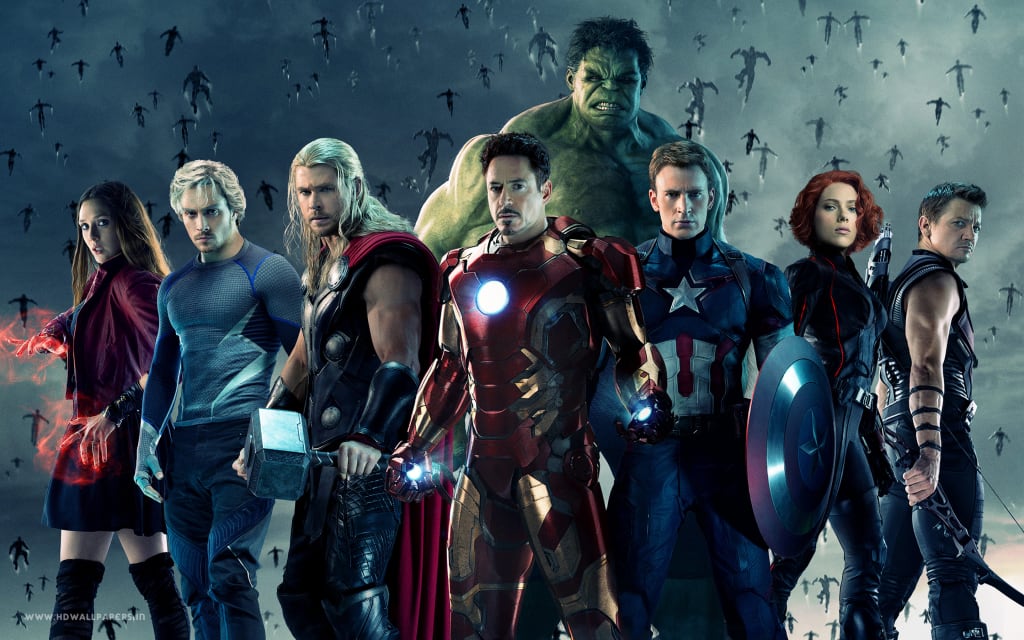
Even as we eagerly await the release of Guardians of the Galaxy Vol. 2, fans are turning their eyes to the future of the Marvel Cinematic Universe. So is Kevin Feige; with Avengers: Infinity War well into production, he's starting to look beyond the end of Phase 3, and has begun to drop tantalizing hints that he may well be abandoning the MCU's current "phase" structure.
The MCU was a bold experiment that could so easily have backfired, but it has proven to be one of Hollywood's greatest successes. Over the course of 14 films, the franchise has grossed a phenomenal $4.2 billion dollars at the box office. Guardians of the Galaxy Vol. 2 is projected to enjoy a $160 million opening weekend, cracking the all-time Top 10 in cinema history. Meanwhile, #Marvel Television is working on a tremendous slate of TV shows, ranging from their popular #Netflix range to Cloak and Dagger and Runaways!
But could the Marvel Cinematic Universe become even better? Here are some ideas for #KevinFeige to consider...
1. Allow Directors To Push The Envelope
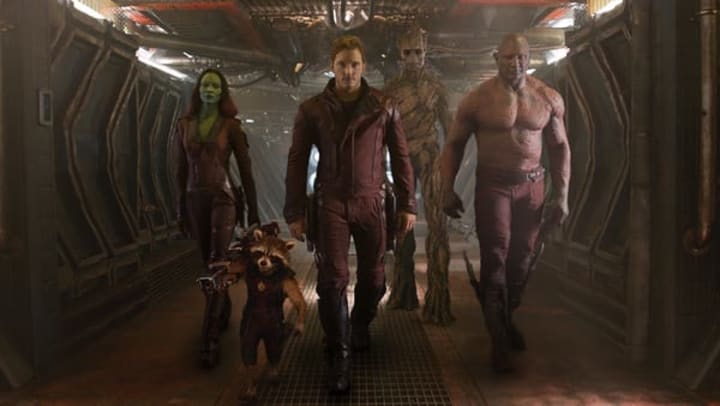
Guardians of the Galaxy could have gone so very, very wrong. There's a sense in which Guardians was Marvel's ultimate gamble; after all, they were asking viewers to care about a walking tree and a talking raccoon! But director #JamesGunn put his heart and soul into the film, and it showed, proving that superhero films can step into almost any genre. It's a lesson that Fox has recently learned too, with the remarkable successes of Deadpool and Logan.
However, the overarching narrative of the MCU has often caused problems for the studio. We've seen a whole host of directors leave the company, exhausted and frustrated; Jon Favreau, Patty Jenkins, even Joss Whedon. Back in 2015, Marvel finally disbanded the Creative Committee that had caused so much conflict, and things seem to have eased up a lot. But there's still that overarching narrative, and that driving sense of momentum which forces directors to adhere to Kevin Feige's vision.
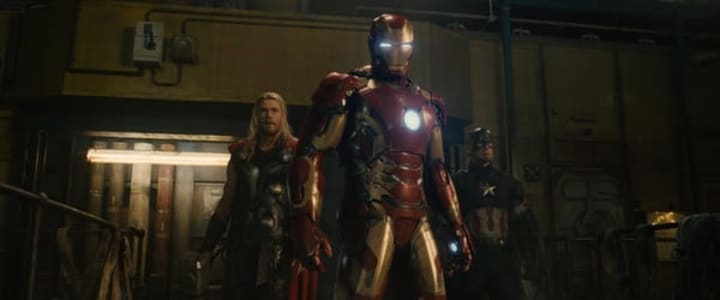
Feige's latest musings, though, suggest that he's considering taking something of a step back from a succession of "phases," which would mean movies could stand alone a little more effectively. In turn, this would give directors more creative freedom to push the envelope, to experiment, and to create Marvel properties that carried their own unique styles and personalities.
If there's one thing that aggravates fans, it's the lack of a clear relationship between Marvel's TV shows and movies. Fans desperately hoped for the Defenders to appear in #InfinityWar, for example — but it's almost certain these hopes will be dashed. The reality of the business is that most moviegoers only watch the films, and random cameos would be confusing.
And yet, another of Disney's franchises has taken a very different approach. Most viewers met Forest Whitaker's Saw Gerrera for the first time when they watched Rogue One, and the film told you all you needed to know; he was a brutal freedom fighter who'd schismed from the Rebel Alliance. Dig a little deeper, though, and you learn that his backstory was told in Star Wars: The Clone Wars, and not long after Rogue One's release, Whitaker was voicing the character for Rebels too.
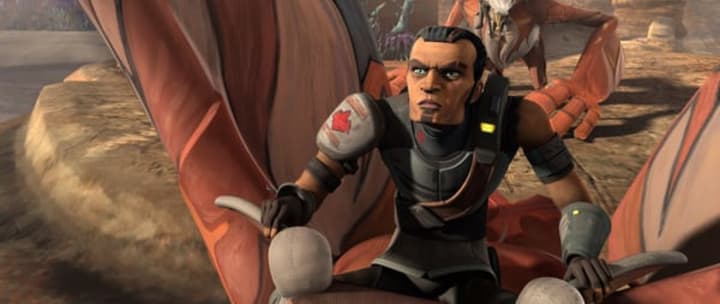
Saw Gerrera in 'The Clone Wars'. [Credit: Disney XD]
Of course, it's easier for Lucasfilm. The TV shows and movies are all coordinated by the Lucasfilm Story Group, who can ensure consistency across all mediums. I doubt Marvel would ever be willing to set anything like the Story Group up — the old Marvel Creative Committee had so many problems that I suspect Kevin Feige would nix a group immediately. But that doesn't mean that Marvel Studios and Marvel Television can't work together at all; they simply need to see one another as essential stakeholders, and carefully coordinate their plans.
3. Animated TV Shows And Movies
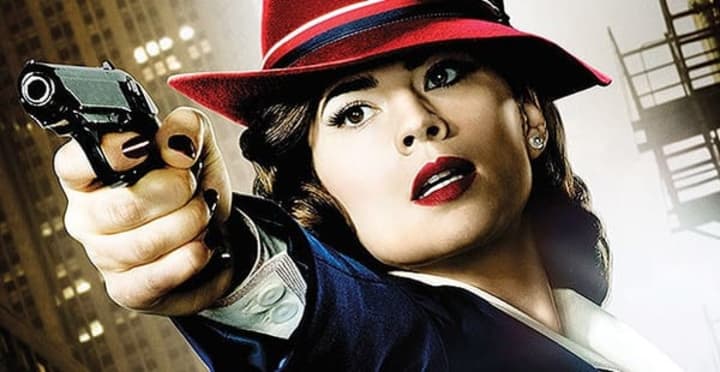
Could this be how we get Hayley Atwell's Agent Carter back? [Credit: ABC]
Of course, Star Wars has proved that you can seamlessly integrate supporting animated series into a predominantly live-action universe. George Lucas was right on the money when he gambled on the success of The Clone Wars, and Rebels continues to play an essential role in broadening out our beloved Galaxy Far, Far Away.
It's a truism among superhero fans that DC tends to outperform Marvel when it comes to animated shows (and even animated movies). Sure, there are the occasional mis-steps; the ill-advised and controversial relationship between Batgirl and Batman in The Killing Joke, springs to mind. But in general, DC has been ruling the roost in terms of animated series.
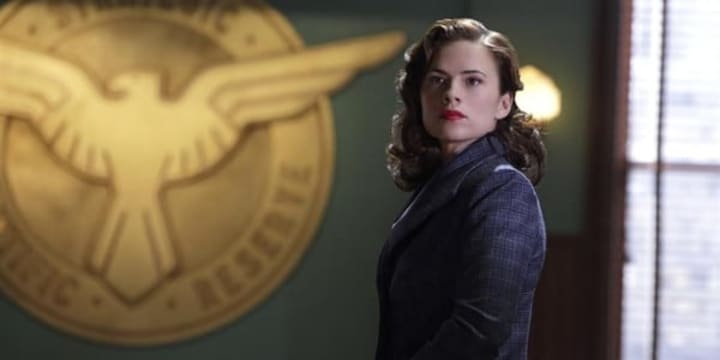
Hayley Atwell's Agent Carter. [Credit: ABC]
Why can't the MCU broaden out to include animated shows? Let me give you an example: last year, ABC canceled Agent Carter after two seasons, much to the disappointment of countless fans. The show's story hadn't even reached the founding of S.H.I.E.L.D. yet, and Season 2 ended on a cliffhanger! Since then, though, Hayley Atwell has proved willing to voice her iconic character in the animated Avengers: Secret Wars series. Why not commission a third season of Agent Carter — but as an animated show, to air on Disney XD?
One strength of animated shows is that you don't need the actors on-set for as long when making an animation. Let's say, for example, that Marvel started working on an animated Black Widow direct-to-DVD movie that told the character's backstory; this wouldn't cause much disruption for Scarlett Johansson's commitments to ongoing Marvel Studios projects, because the script could be prepared in advance, and record her voice in just a few sessions.
4. Branch Out In The Films
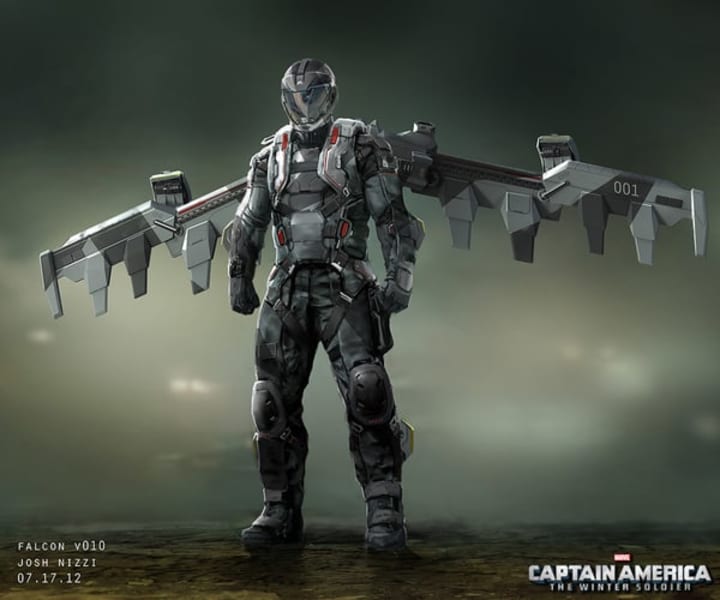
Concept art for 'Captain America: The Winter Soldier'. [Credit: Marvel Studios / John Nizzi]
The MCU is broadening out in style and tone, but it still faces one very real restriction; it's all about superheroes. Now, I love superheroes, but Marvel has the potential to build a world that's far richer and more diverse. Imagine a film, for example, that focused on a group of elite paratroopers attempting to extract a key marine from a warzone in the Middle East. All you need to do to make it a Marvel property is to make these paratroopers Falcon's old regiment, complete with Falcon wings. You see what I'm getting at? We have a whole universe out there, filled to overflowing with fascinating concepts, and they could easily be explored in a far wider range of films.
Marvel Studios wouldn't even need to make these films themselves. They could license them out to other studios, just as Marvel used to license out their superheroes (but maybe specify just for one film at a time!). The other studios would get a chance to work with Marvel's ideas, while Marvel would gain another revenue stream. Better still, because these spin-offs wouldn't be superhero films, they wouldn't even be competition for Marvel's own movies.
5. Broaden The Experience
Immersive theater is a revolutionary approach that attempts to involve theatre-goers in the experience. There's also such a thing as immersive cinema, and Marvel's actually experimented with it already. The idea is that you extend your film-universe into the real world, by creating a LinkedIn page for Harold Meachum in Iron Fist, for example, or launching an in-universe news channel that's really all about the buildup towards the next movie.
As tremendous as these first steps have been, though, they've been the exception rather than the norm. Marvel Television created websites and social media pages to support Iron Fist, but not Luke Cage; WHIH Newsfront advertized Captain America: Civil War, but not Doctor Strange (you could easily have made a short news piece interviewing famed neurosurgeon Stephen Strange, and another reporting his horrific car accident). This immersive aspect of the MCU has felt like an afterthought on the part of marketing, rather than a carefully considered part of the brand.
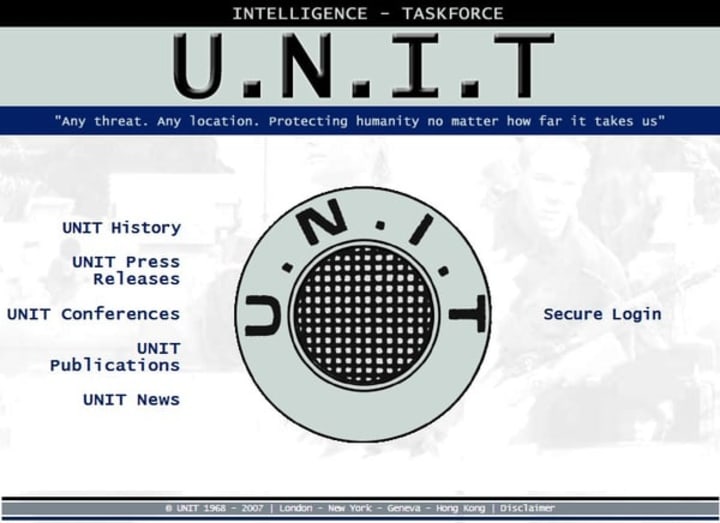
The website even included a secure section! [Credit: BBC]
Contrast this, for example, with an approach taken by the BBC's #DoctorWho back when the show launched in 2005. Showrunner Russel T. Davies was a huge fan of immersive experiences, and each episode was accompanied by social media profiles, company and organization websites, and even mobile phone apps. It was a huge success, and it gave fans something else to get excited about!
The MCU is a tremendous success, and in no way am I trying to detract from Marvel's tremendous accomplishments. But I'm hungry to see the MCU continue to develop and grow, and these are just some ideas for how that could happen. Fundamentally, behind the scenes there's one thing these all require; a joined-up approach. Right now, you get the sense that both Marvel Studios and Marvel Television are essentially doing their own things, and that's a recipe for creative conflict in the long-term. Should the two companies start to coordinate their efforts, though, they'd find a whole new vista of opportunities would be opened up...
About the Creator
Tom Bacon
A prolific writer and film fan, Tom has a deep love of the superhero genre.






Comments
There are no comments for this story
Be the first to respond and start the conversation.